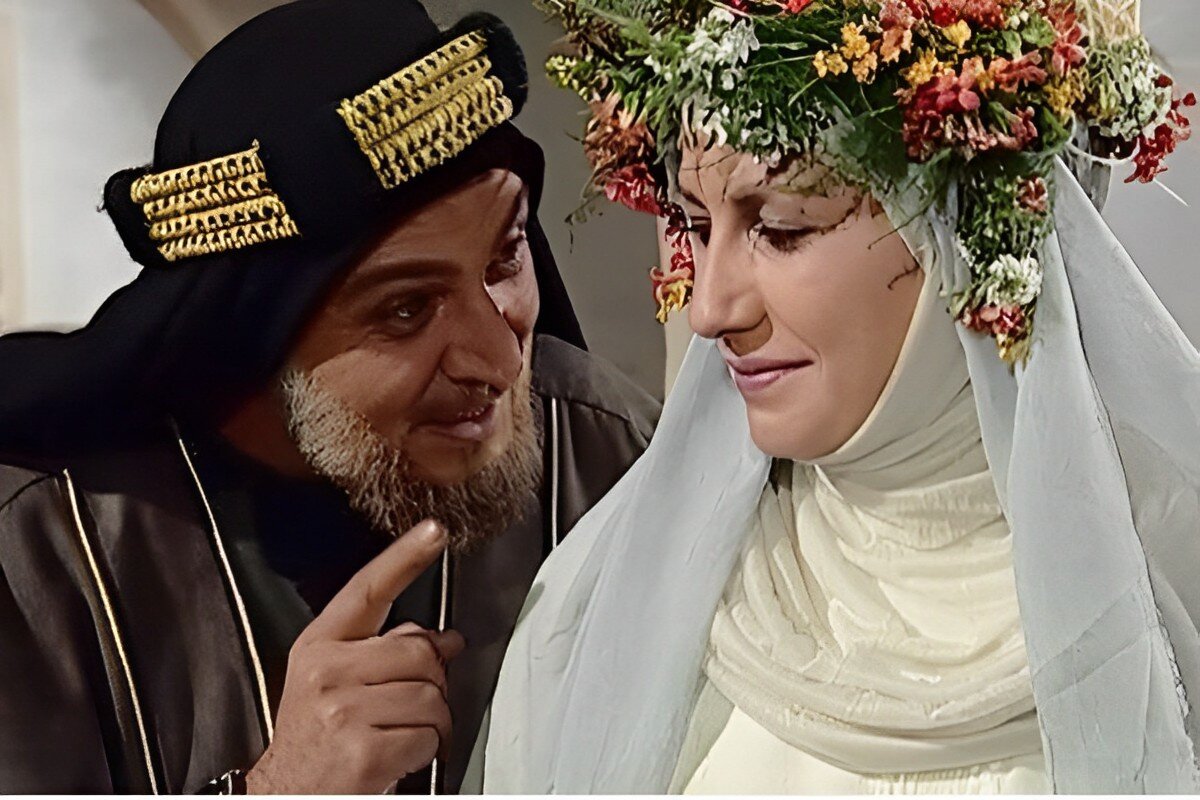Portrayal of Ashura through the lens of Iranian cinema: Part 5

TEHRAN – TV series based on religious themes, particularly Ashura event, are produced annually with various directors.
However, it is widely recognized that the series created by Davud Mirbaqeri consistently stand out as the most popular among the viewers. Over time, Mirbaqeri has proven to be a director with a distinctive style, particularly when exploring the captivating themes of Islam and history in his works.
Although he has directed social and comedy films throughout his career, his expertise in creating historical films is somewhat lacking in these works.
Mirbaqeri has demonstrated his ability to effectively depict religious themes in his films, skillfully capturing the essence of the content while avoiding excessive embellishments and the need for grandiosity in his movies.
Mirbaqeri directed the captivating and popular series “Lost Innocence” in 2003. This historical drama revolves around the Ashura theme, and it further captivates the audience by intertwining a compelling love story.
This series is set in the first century of the lunar Hijri calendar and revolves around a character named Shuzab. He, who was a lifelong companion of Imam Ali (AS), has now ascended to the position of treasurer in Kufa under the Umayyad dynasty. Umayyad rulers, after the tragic incident of Ashura, relentlessly pursued the persecution and torment of the companions of Imam Ali (AS) and Imam Hussein (AS), employing all their might and resources in their sinister mission.
Despite his internal struggle, Shuzab finds himself torn between the affection of two remarkable women: Maria, a Christian who entered a life of devotion following her mother's passing, and Homeira, a Jewess.
He is initially captivated by Maria, who cherishes the memories of Imam Ali's reign and his unwavering support for the impoverished, regards Shuzab as a righteous companion of Imam Ali (AS).
Believing that Shuzab possesses the same purity, integrity, and moral conduct as Imam Ali (AS), Maria not only falls deeply in love with him but also enters into the sacred bond of marriage.
In spite of being among Imam Ali's companions, Shuzab is swayed by selfish motives. Instead of upholding the truth, he becomes consumed by a pursuit of power and materialism. As Homeira, a Jewish gypsy, enters the picture, Shuzab's indifference toward Maria grows and a new affection for Homeira arises.
The incident of Karbala, indeed, unveiled the hideous and atrocious nature of the Umayyad Caliphate to the entire world and following this event, no one could justify defending the Umayyads any longer.
However, Shuzab lost his positive standing and became a decidedly negative character by aligning himself with the Umayyads. He is undoubtedly a person focused on seizing opportunities and pursuing his own interests, prioritizing worldly gains over a sense of entitlement.
The presence of Maria and Homeira truly enhances this content. They are both emblematic of contrasting mental inclinations. While Maria is dedicated to righteousness, truth, and justice, Homeira embodies a sly and deceitful nature, thriving in darkness, hypocrisy, and cunning.
Meanwhile, Shuzab is a character who navigates between these two tendencies, ultimately gravitating towards squalor and tyranny.
Shuzab's journey takes him on a treacherous path, leading him from wealth and success to despair and the shadows. While he initially reaps certain advantages, in the end, he finds himself utterly humiliated and deprived, his life spiraling into madness and ultimately meeting a tragic fate.
Mirbaqeri demonstrated how to transform a marginal and seemingly inconsequential subject, rooted in reality, into a resounding and widely recognized series, all accomplished with a modest budget.
Furthermore, it's worth noting that portraying imams and prophets in films and series encounters significant challenges due to limitations, including restrictions on showing their faces. However, delving into the lives of peripheral characters who were connected to them proves to be a more attainable endeavor.
The remarkable success of "Lost Innocence" owes much to its well-chosen music, which seamlessly blends with the overall atmosphere of the series. The makeup perfectly complements the characters' personalities, while the dialogues are both captivating and appealing.
The touching song by Mohammad Esfahani in the end credits adds depth and meaning to the story.
The captivating tale and the compelling ideas were masterfully conveyed in "Lost Innocence" through the brilliant performances of Amin Tarokh as Shuzab, Fariba Kosari as Maria, and Sara Khuiniha as Homeira.
To be continued
Photo: A scene from "Lost Innocence" TV series
ABU/
Leave a Comment